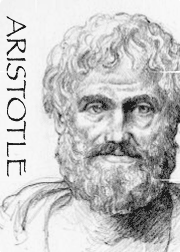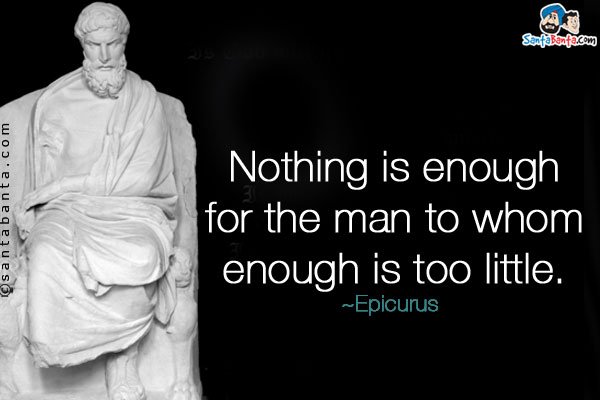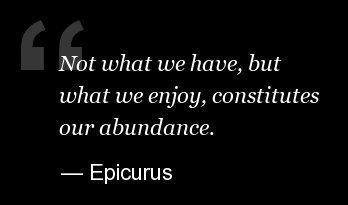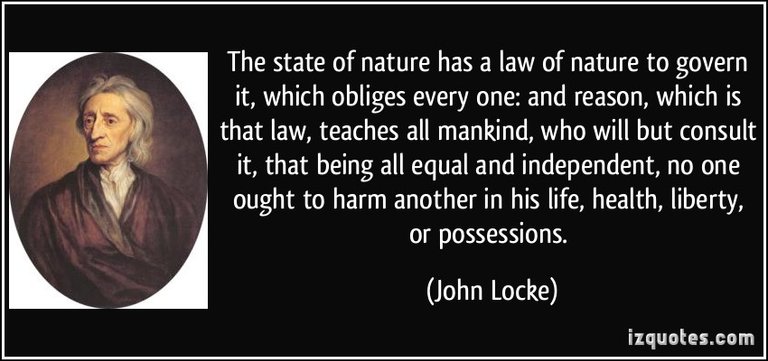In today’s world, the central planners of government want you to have a title and or degree beside your name to be recognized for anything. This is true in philosophy. To be clear, I do have one of those worthless degrees. I don't aim to say that the studious work I did to obtain the degree I have was not valuable. It certainly was. I, again, do not have a degree in philosophy. What I have is an active mind interested in the workings of the universe. Now that is something worth having. Nature and the philosophy and deep thoughts about creation and the mechanisms of spirit are topics that I could not stop thinking about if I wanted to.
Nature and God, to me, are the same thing. God does not have to be personified to exist. I feel as though to do so is simply humanity’s vain ego attempting to be at the top of absolutely everything. We are not. Nature is within us and can come through us.

My influences philosophically are simply three individuals. Sure, I have been influenced by many religious writers and philosophers. Those influences range from Sri Ramakrishna, Thomas Paine, and Aleister Crowley to Murry Rothbard and Emma Goldman. These giants are amazing, but it is my belief that they built on a foundation set by one or all of these other three. They are Aristotle, Epicurus, and John Locke.

Through my blog here on Steemit, I hope to inspire others to investigate these wonderful philosophers. So far, I have written one article on Locke which my friend @adamkokesh shared on his page in the Forgotten Freedom Fighters series https://steemit.com/freedom/@adamkokesh/kindling-the-fires-of-freedom-john-locke-forgotten-freedom-fighters. I hope to share more thoughts about each of them in the future. For now, I wanted to share my thoughts in their regard and what they have given to my philosophy.

Aristotle was a philosopher who lived in Greece around 300 BC. He was fundamentally influenced by Pythagoras. Some might argue that Aristotle based his thoughts on the established philosophy that his teacher presented. I would say that everyone is influenced by someone. Where Aristotle differs from Pythagoras is in depth.
In his 9 volume book Metaphysics, which he called the “First Science,” or “Theological Science,” he discusses nature and nature's god to unbelievable lengths. Ultimately, he proves to himself and to me a very specific statement. That statement is, Nature and the whole universe is divine, that divinity has a consciousness and it is directly connected to the human soul.

Epicurus is sometimes seen in opposition to Aristotle. Although few documents exist outlining his philosophy, we do have some, and we have many writings by people who were directly inspired by him. The opposition, from my point of view, between these two is not actually between them but instead by religious fanatics twisting Aristotle and running in fear from the simple truths of Epicurus.
His teachings to me are simple. In a nutshell, everything exists in this universe. There are no transcendent realities. Our search for God or Spirit is not a search outside of this existence, but a search for a deeper understanding of this one. Science is making huge strides in proving this. No longer do we postulate that we exist in 3 dimensions, but many. There are at least 6 that most, if not all, physicists agree on. We may, at this time, be only aware of 3 to 4 but mathematically we know that others must exist. It is not a stretch to say that our beings are part of the eternal vastness that is everything. When we die our energy is consumed by this universe to be used by it to sustain something else. This does not suppose that there is not an existence after death. In fact, it goes a long way to the ends of proving that there is. Modern science is in a bit of a transformation right now. Credible scientists are investigating the possibility that consciousness itself may be fundamentally part of the building blocks of everything that is. Is this God? We do not know yet. Do rocks, under this idea, have thoughts? No, not necessarily. Just like carbon atoms come together with other atoms to form a rock, and other carbon atoms come together with others to form a dog does not indicatethat a rock moves or shits in your yard. It is a similar idea. Epicurus is the origin of many of these thoughts.

What also Epicurus brings to the table that composes my own and other philosophies, is where he takes this more atomistic view of the universe. He asks how we, with all of the unknowns, should live our lives. His answer is to follow your happiness. Find those things that lead you, the people you love, and the thoughts you have, into a search for more and more pleasure. He encourages the spread of joy. Enjoy your life and do whatever you can to encourage others to enjoy theirs. Even if I am wrong about the larger questions, I think helping myself and others to smile more is worth all my time.

That brings me to John Locke. Voltaire said of him, "Perhaps no man ever had a more judicious or more methodical genius, or was a more acute logician than Mr. Locke, and yet he was not deeply skilled in the mathematics. This great man could never subject himself to the tedious fatigue of calculations, nor to the dry pursuit of mathematical truths, which do not at first present any sensible objects to the mind; and no one has given better proofs than he, that it is possible for a man to have a geometrical head without the assistance of geometry.”

Yes, John Locke is a huge influence on my views on government, but this not where his influence ends on me. His theories about the self and self ownership are a cornerstone of who I am. More than that, his depth of understanding the natural world is complex and enlightening. Nature, in Locke's world, is a place of laws where it is understood that the few rules that nature itself imposes on the world are simple. When those natural laws are broken the consequences are forfeiting of those rights yourself. An example is the law of property as it relates to self ownership, and the law of self defense as an extension of that law. If someone tries to hurt or kill you, which breaks your right to self ownership, and causes you to use your right to self defense, they, because they transgressed the right to property, may be harmed or killed by you without you having broken that law.
These three philosophers continue to influence my understanding of the universe. Although I endeavor to learn their teachings and my interpretations of them, I recognize that I am building on the backs of giants.

You need some Spinoza in your life, my man.
I agree, I am familiar with him but have yet to read him.
I love your post on philosophy. Follow me please
I think you would find great value in Omraam Mikhael Aivanhov's material. His books are outstanding.
I will have to check him out